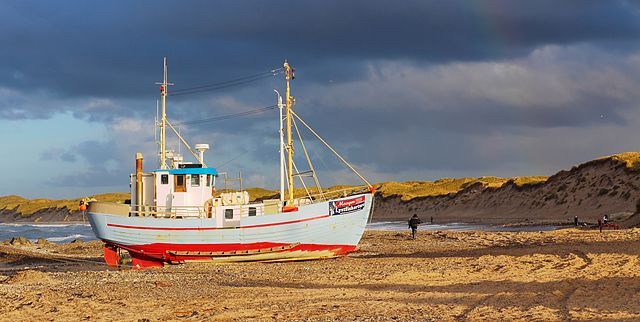Denmark’s environmental and food minister, Esben Lunde Larsen, has just completed tough negotiations in Luxembourg on next year’s fishing quotas in the Baltic Sea.
Danish cod fisheries were hit hard, but not as hard as the EU Commission had originally planned.
The EU Commission had originally envisaged a reduction of cod quotas in the western Baltic Sea of 88 percent. Larsen managed to negotiate that down to a reduction of 56 percent. In the eastern Baltic, the EU originally called for a reduction of 39 percent. The parties agreed on a 25 percent decrease.
“We have done everything in our power to negotiate some acceptable quotas for the Danish fishermen,” said Larsen.
“I see it as a half-victory, because it ended up better than the miserable start.”
No cause for celebration
Larsen said that the result will “still hit Danish fishermen hard, so there is no reason to rejoice.”
New quotas were also set for plaice, herring, salmon and sprat, some even being increased.
“It is positive that the quotas were increased for selected species, but cod is the most important species for fishermen in the western Baltic Sea,” said Larsen
“The result is not good enough and it will be felt by fishermen and the ports.”
Environmental group wants more
Although Larsen may think the quotas cut too deep, the environmental group Oceana does not think they go deep enough.
“Today’s agreement seems to cover the bare minimum for legal requirements but lacks ambition to restore the heavily overfished western Baltic cod back to healthy levels,” said Lasse Gustavsson, the executive director of Oceana in Europe.
“By deciding to continue overfishing, ministers not only risk environmental collapse but also ignore the potential growth for all fishing communities along the Baltic coast that depend on this iconic fish.”
Calls for a temporary ban
Gustavsson said that Denmark and Germany exploit most of the western Baltic cod stock and have “led the campaign to continue cod overfishing in the Baltic Sea despite warnings from scientists and NGOs.”
READ MORE: Danish fishermen fear the prospect of lower cod quotas in the Baltic Sea
Oceana said that western Baltic cod stock is currently is at its lowest ever recorded levels and has been advocating for a temporary closure of targeted fishing for western Baltic cod in 2017.















